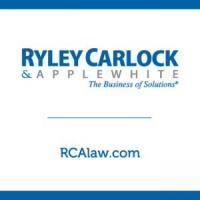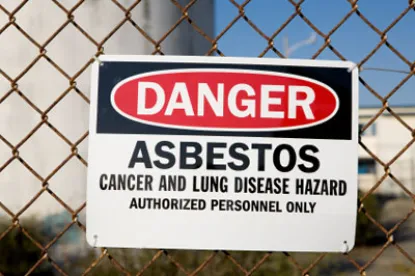In a recent published opinion, the Arizona Court of Appeals held that an employer does not owe a duty of care to the child of an employee who contracts mesothelioma from asbestos brought home on the employee’s work clothes, dealing a fatal blow to “Take-Home” asbestos exposure cases in Arizona.
In Quiroz v. Alcoa, Inc., the Plaintiffs alleged that Ernest Quiroz was exposed to asbestos in his childhood home from 1952 to 1966 because his dad, who worked at Reynolds Metal Company, brought asbestos home on his work clothes. --- P.3d ---, No. 1 CA-CV 15-0083, 2016 WL 5075524 at *1, ¶¶ 9-4 (Ariz. Ct. App. Sept. 20, 2016). Reynolds moved for summary judgment arguing that it did not owe Mr. Quiroz a duty of care and the trial court agreed, finding no duty “as a matter of law.” Id. at ¶ 5.
On appeal, the Court began its reasoning by rejecting the notion that foreseeability creates a duty: “Whether a defendant owes a plaintiff a duty of care does not turn on the foreseeability of injury.” Id. at ¶ 8. Instead, the Court analyzed whether there is a “special relationship” in “take-home” asbestos exposure cases or if public policy considerations create a duty. Id.
With regard to the special relationship, the Court rejected the argument that Reynolds owed a duty to avoid creating hazardous conditions on its property that would cause injury to persons off the property. The Court found that the sections of the Restatement relied upon by Plaintiffs to make this argument treated foreseeability as the primary factor in analyzing the existence of a duty, which is contrary to Arizona law. Moreover, the Court found that relying on foreseeability “effectively eliminate[es] duty as one of the required elements of a negligence action.” Id. at ¶ 13. Likewise, the Court rejected the notion that Reynolds was liable as a landowner, since the duty of a landowner typically terminates when a licensee leaves the property and Quiroz was not an invitee or licensee on Reynolds’ property at any time.
Finally, the Court analyzed whether public policy creates a duty in “take-home” exposure cases. The Court considered several factors, including “[t]he reasonable expectations of parties and society generally, the proliferation of claims, the likelihood of unlimited or insurer-like liability, disproportionate risk and reparation allocation, and public policies affecting the expansion or limitation of new channels of liability.” Id. at ¶ 23. The Court reviewed each of the factors, and particularly relied on two points: (1) the failure to limit the duty to homemakers, possibly expanding claims to people that come in contact with asbestos tainted clothing in cabs, grocery stores, or Laundromats. For example; and (2) the possibility that finding a duty in “take-home” asbestos exposure cases would “exacerbate the current asbestos litigation crisis.” Accordingly, the Court refused to find a duty on employers in “take-home” asbestos exposure cases.
Although the Court’s opinion does not address product manufacturers, as opposed to employers, this opinion could likely be extended to defeat “take-home” asbestos exposure claims alleged against suppliers and manufacturers. It is unlikely that a Court would find a “special relationship” between a manufacturer and the child of a person exposed to asbestos from the manufacturer’s product since there is no relationship and a plaintiff would have to focus on foreseeability as the factor creating a duty. As the Court discussed at length, foreseeability cannot give rise to a duty under Arizona law. Further, the public policy considerations for manufacturers and suppliers are identical to those raised in Quiroz.
The deadline for Plaintiffs to appeal the Quiroz opinion is October 20, 2016. The Arizona Supreme Court’s review is discretionary.




 />i
/>i
